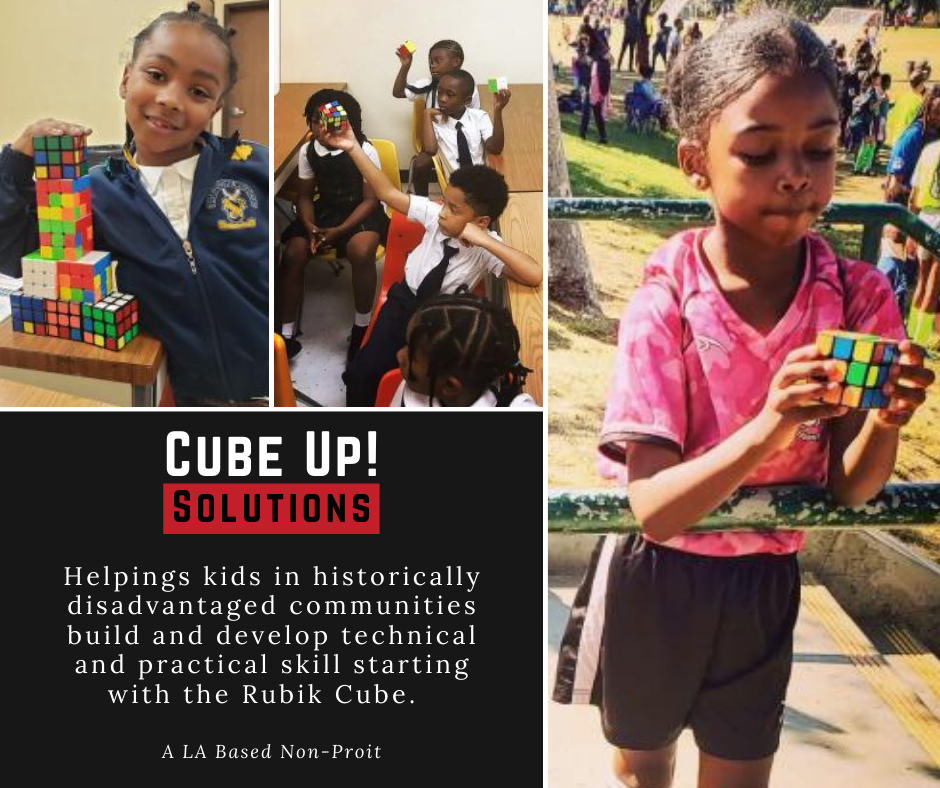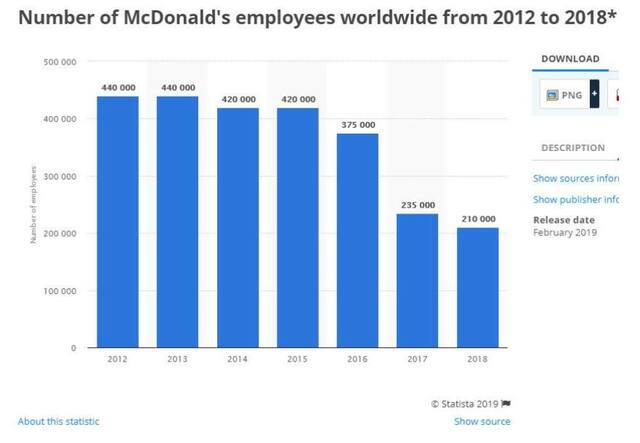|
The Rubik's Cube, invented in 1974 by Hungarian sculptor and professor of architecture Ernő Rubik, is a puzzle with over 43 quintillion possible combinations. Yes, 43 quintillion! 43,000,000,000,000,000,000! For many, a puzzle with that many possibilities seems practically impossible to solve, but for decades, people have been improving the uses of the Rubik's Cube from just an experiment of the creator, to a logical puzzle game, to a sporting event that features incredible people known as “speed cubers.” Learning to solve the cube offers many benefits, including improved memory and problem-solving skills, the ability to map through the experience in learning algorithms, and improved reflexes from training to solve the cube at faster speeds. The cube also provides intangible benefits like discipline, perseverance, and self-confidence. And, of course, it makes for a hell of a conversation starter.
The benefits of learning the cube have been felt first hand by the team behind Cube Up Solution, a group of young, Black software developers and avid cubers who wanted to introduce more minority children to the wonder world of cubing. The team behind Cube Up Solutions believes that it is their duty to promote cubing in minority communities and help develop problem solving and technical skills of children, teenagers, and adults who may otherwise not appreciate the wonders of cubing.
The team behind Cube Up Solutions believe that the social and political landscape of the United States, especially for the Black community, is shifting and a change of focus and leadership is necessary. We believe leadership needs to shift focus from obtaining political power to acquiring more intellectual and economic power.
We hope to contribute to developing our future leaders of tomorrow by helping develop their problem solving and technical skills. We look at cubing, coding, robotics, genetics as fields that young children should be focusing on now so as they move into their future careers they have a foundation to help further the cause of creating equality of opportunity for all. We look at the Rubik’s cube as a perfect springboard to introduce kids to the skills they will need to survive and thrive in the world of tomorrow.
If you are interested in having your child learn the Rubik’s Cube, or if you want more information about Cube Up Solutions and what they can offer your community, please request more information via email at [email protected] or through Instagram under the handle @cubeupsolutions.
~~ Article and images provided by Cube Up! Solutions ~~
0 Comments
By Ryan Tibbens for educational purposes only
~~ If you do nothing else with this article, watch the Andrew Yang/Joe Rogan video clip linked below. Automation is going to change the world. ~~ I'll begin by saying that I support the minimum wage as an imperfect though well-intended and mostly functional concept. Some even suggest a currency-adjusted, global minimum wage, which has become a point of contention between some economists. (Now that the less-open-minded libertarians among us have bailed, we can proceed thoughtfully.) More and more large corporations are announcing their support for a $12 or even $15 minimum wage, and it should come as no surprise. These businesses include Amazon, Disney, Target, Walmart, and now McDonald's. We shouldn't be surprised because big businesses will always do what is best for themselves and their shareholders: crush competition and generate profits. A corporation's sole purpose is to generate profits through channels that mitigate the financial loss and personal liability of shareholders. As such, these modern giants see the benefit of increasing the minimum wage -- they can afford it, and much of their remaining competition can't. Even if a wage hike doesn't make sense in the short term, allowing government to legislate their competition out of business is a winning strategy in the long term. And since each of these companies is intensifying dependence on automation, they will have fewer human employees to pay soon anyway. [Article continues below.]
A Friend recently shared this article about McDonald's abrupt shift to supporting a minimum wage increase. "By sticking together and taking action on the job, courageous workers in the Fight for $15 and a union have forced McDonald's – the second-biggest employer in the world – to drop its relentless opposition to higher pay," SEIU President Mary Kay Henry said in a statement. "Now, McDonald's needs to use its profits and power to give thousands of cooks and cashiers across the country a real shot at the middle class by raising pay to $15 an hour and respecting its workers' right to a union." My friend went on to point out that McDonald's has cut its workforce by nearly 50%, nearly 210,000 jobs, in the last four years.
Of course, we've all heard horror stories about fast food automation, from robot grill masters that work slower than the stoned 17 year olds they replaced to the poop-smeared touchscreen kiosks (or maybe not). But this is a primary reason McDonald's and other large companies are actually reducing employment. Will increasing the minimum wage really intensify automation? Many people certainly think so, particularly those who oppose the minimum wage in the first place.
So what is going to happen when McDonald's and Amazon and the rest strong-arm the federal government into increasing the minimum wage on their own terms? 1) Big companies can afford the increased wages, at least in the short term, so they gladly pay. 2) Smaller competition goes out of business trying to pay those wages. 3) Big companies receive the surplus business because they've outlasted competition. 4) They use the increased revenue to further invest in automation. 5) Nearly no one is left making $15/hour due to massive layoffs (thanks to automation), so the minimum wage doesn't really matter anymore. 6) We move to some form of universal basic income because, without it, no one will be able to buy food from McDonald's or random crap from Walmart and Amazon. 7) We all admire President Yang's forward thinking -- Andrew Yang for President 2020. 8) Karl Marx replaces Alexander Hamilton on the $10 bill. (Okay, maybe not this part...)
Seriously, watch the video.
By Ryan Tibbens
What is the measure of a man? Should we judge people based upon their best days? Their worst? Their words? Actions? Those they helped? Hurt? Is it possible to quantify a person's morality or lifelong influence? Is a person's humanity best encapsulated in his worst moment or best, or are we defined by our mean, median, or mode? On this Easter Sunday in particular, we should all be thinking about redemption.
In my late teens, I theorized that a person's value, at least in moral terms, could be determined by the sum of her decisions and actions. Every bit of good was scored +1, every bit of bad -1; we could arithmetize a person's value in the world. Plus or minus one for every instance of helping or hurting. I suggested quantifying based upon the recipients of help/hurt, rather than the simple number of acts. There is an oversimplified truth in the math, and despite its simplicity, it would give a better assessment of a person's moral worth than simply judging based upon a best or worst moment. It would certainly be better than trial by social media, which recently seems to be the most popular test.
Given our recent Outrage Culture or Cancel Culture or whatever you'd like to call it, finding a system of ethical assessment has never been more important. Each day, we use the internet to reclassify historical heroes as demons to forget. We use social media to raise up everyday heroes, only to learn one week later that our angel is utterly human. Our fifteen minutes of fame has never been easier to achieve, but it's also never looked less appealing. Thanks most recently to social media and smart phones with cameras, then to the internet, to mass media, to the printing press, to the written word, and so on, we can track human behavior to an extent once unimaginable. What's even crazier is that we voluntarily forfeit our privacy and autonomy by sharing every bit of our lives online. George Orwell imagines a world of surveillance and social pressure and paranoia in 1984, and today we live it. However, what Orwell never saw, or at least never explained, was how humanity would ultimately choose to live sans privacy. Dave Eggers re-envisions Orwell's nightmares in the context of 21st century life online and explains the process by which privacy will die -- in The Circle, humanity chooses to share everything all the time. There is no authoritarian takeover, just well-marketed, new technology. Everything is online, rated with a thumbs up or down, a like or an emoji; one can't paddle a kayak or get a handjob without sharing the experience online, cameras are everywhere, and nearly everyone opts in. In Eggers' world, people live in total transparency; everyone knows everyone else's personal and professional activities, opinions, feelings, even their parents' and ancestors' transgressions. In one relevant scene, Annie, a young, fast-rising executive at the social media company, agrees to share her ancestry reports only to learn that her supposed blue-blood family had spent generations buying, selling, and abusing human slaves in Europe and North America; she then learns that her parents engaged in a variety of perverse behaviors and once watched a homeless man die as part of a date. Though Annie is to blame for none of these horrific acts, public opinion turns, her career implodes, and her health falters. Is it right for a person to lose her job, her friends, or her happiness because of indiscretions in the distant past?
Today, outrage rules. Our 24-hour news cycle is hungry for content, so when the president isn't tweeting something stupid, the weather isn't destroying homes, and no new wars are erupting, any scandal will do. To operate a cable news channel, all you really need is a semi-literate anchor and a guest who will express outrage -- people will watch, and advertisers will pay. But what about outrage that is disingenuous or poorly directed? What about doxxing people, even youths, who have committed no offenses? Social media has helped to give people what we unknowingly want -- a world in which everyone is either with or against us, where most people agree with us within our echo chambers, where advertisers pay to learn exactly what we want and sell us exactly that. With our world seemingly in a tailspin, perhaps we should slow down and reconsider our judgments and their repercussions.
Is Bill Cosby a bad guy? Yes. Should we avoid The Cosby Show? Probably not. Is Bill Clinton a bad guy? Probably. Should we disavow everything he did as president? Probably not. Was Martin Luther King Jr. a plagiarist and philanderer? Yes. Should that discredit all his other achievements? No. Was Gandhi a racist? Yes. Should we cast aside his human rights work? No. Did Mother Teresa lose faith in God? Yes. Should the Catholic Church label her as an infidel rather than a saint? No. Was Thomas Jefferson a conflicted, confused racist who loved a black woman? Yes. Was he a rapist? Possibly. Should we tear down his monument, burn Monticello, and erase the Declaration of Independence? No. Was Margaret Sanger a eugenicist? Yes. Should that be grounds for closing Planned Parenthood? No. Human beings are inherently flawed, and if we hold all people to super-human standards of modern, progressive morality, we will have no heroes. Hell, Old Testament Yahweh couldn't hold up to modern scrutiny with all his smiting and young virgin brides and directions for executions and sexism and racism and support for slavery and on and on. When the gods aren't good enough, then perhaps good enough doesn't exist. Choose any significant figure you like, give me ten minutes to research, and I'll cast serious doubt on character or achievements. Should we cancel all our heroes? No, because there is usually a baby in that bathwater, and it is usually possible to appreciate a person's contributions without embracing his sins. I recently had a discussion with a small group of students in which most of them, one young woman in particular, argued that it is now morally wrong to listen to Michael Jackson or R. Kelly because of their off-stage behaviors. I asked her what they did, and she rattled off a list of abusive, perverse behaviors (only some of which have been proven). All the other students who have access to Hulu and HBO quickly expressed disapproval. I shared her concerns about those behaviors, but I disagreed that I should never dance to "Thriller" or "Remix to Ignition" again without feeling guilty. She said that the creative works represent their creators and that enjoying the works is the same as supporting the creator. But that is insane, right? I can love The Motorcycle Diaries without loving Che's violence and bigotry. I can love Sublime and Janis without loving heroin. Can't I? Over the last couple of years, our society has polarized in ways that go far beyond left-right politics. Our urban-rural, rich-poor, educated-uneducated gaps have all expanded along with dozens of others. Our seams are ready to burst. The most interesting development though, by far, is how we judge people. Biased thinking is timeless, but I'm not sure if people have ever been so quick to attack or defend a person based upon their prejudices as they are now. Even if that kind of thinking is not new, our ability to research and read should control for hypocrisy, but they do not. Google and Bing and Yahoo and Facebook and Twitter and all the other curators of the internet show us what we want to see, not necessarily what we asked to see. Google knows how I feel about Louis CK long before I search his name, so they show me what I want, not necessarily what is true or current or reasonable. In a world in which everyone is connected electronically, when we can all share our feelings and judgments instantly, where we spend more time arguing with strangers in comment sections than talking to our next door neighbor, how can we ever have justice? When our neighbors don't know that we exist but acquaintances and strangers watch our every move online, how can we make sense of our world? Priorities are unclear, and morals are contradictory. You can't reasonably say that you want prayer in schools but then criticize schools for allowing Muslims to pray throughout the day. You can't reasonably tell me that you support prisoner rehabilitation and shorter prison sentences for criminals but then ruin a person's career and accept no apology because of politically incorrect language. Our elected officials are not narrowly defined by their greatest accomplishments nor worst transgressions. Who will be pure enough to be president in 40 years? If advocates for political correctness and social justice warriors have their way, no one. We will have amassed enough status updates, tweets, Snaps, and photos that no one will satisfy the current standard for public service. Well, no one will be pure enough to run as a liberal or progressive, anyway. Conservatives, who have traditionally claimed religious virtue and moral high grounds, seem not to care about these indiscretions. Most of that leniency seems to be about political expediency, but it is possible that a certain degree of Christian forgiveness factors in. Either way, current and recent politicians' concerns are nothing compared to children born today: "hot mic" scenarios have been relatively conspicuous and controllable until recently, but today's infants are growing up with hot mics everywhere. Unless they are a new breed of super-human, none of them will escape the embarrassments of youth or poor judgments of young adulthood that plague us all, so none of them will be pure enough for public service or corporate leadership. A person's moral value can't be fairly determined based solely upon their bests nor their worsts. An averaging of the two (or a median) might get closer, but arithmetic will rarely yield a solution in ethics. What we need is a little perspective. Jesus once said, "He that is without sin among you, let him first cast a stone." Youthful mistakes are often just that, and microaggressions are usually more symptomatic of unawareness than anger. We need to remember that all humans are flawed and contain potential for both good and evil. We would be wise to focus on trends and patterns of behavior rather than isolated indiscretions. One man's mistake is another man's hobby. If we have any hope of improving the moral character of mankind, then we must learn to differentiate between sincere and manipulative apologies, between progress and pretense. There must be a way to redeem ourselves after transgressions; otherwise, we've paradoxically found a way for morality to make the world worse. In our ultra-connected, over-stimulated world, we need to understand that good words without good deeds are fool's gold, and also that few deeds are more important than forgiveness. |
Read.Think.Write.Speak.Because no one else Archives
December 2021
Categories
All
|















 RSS Feed
RSS Feed